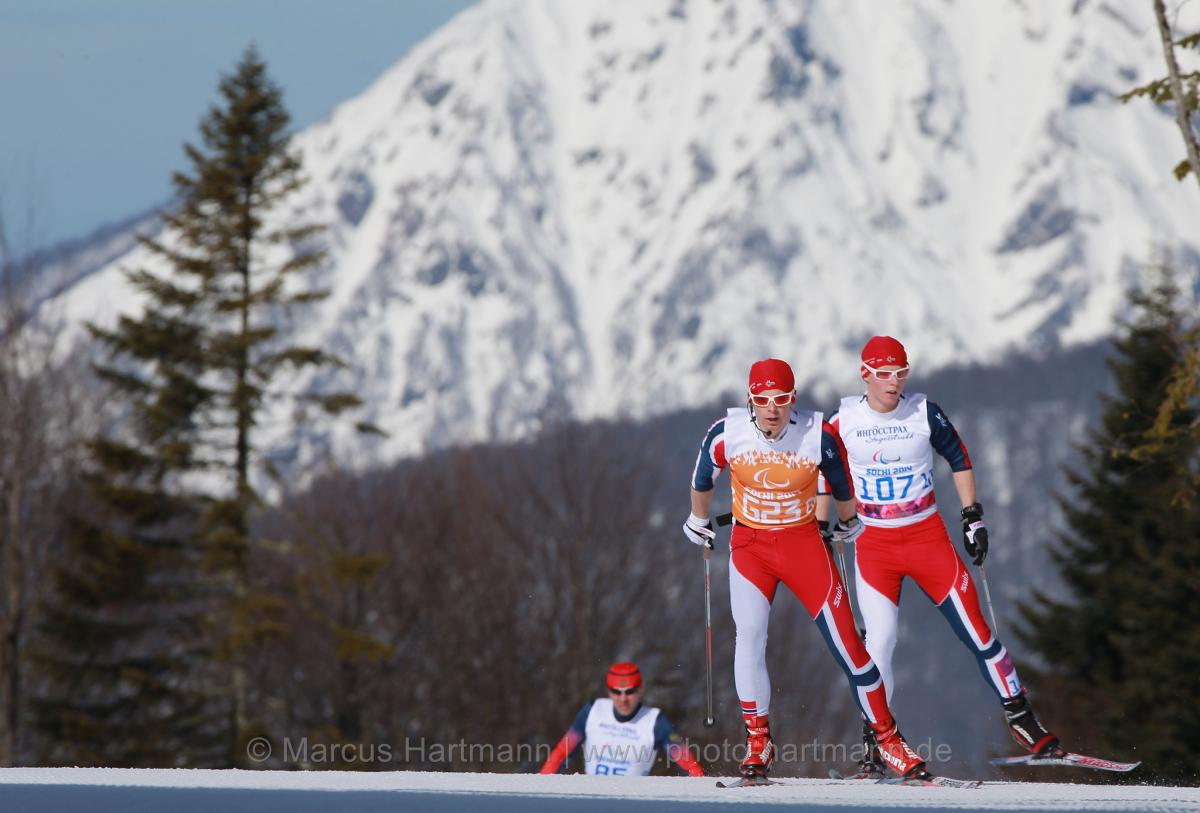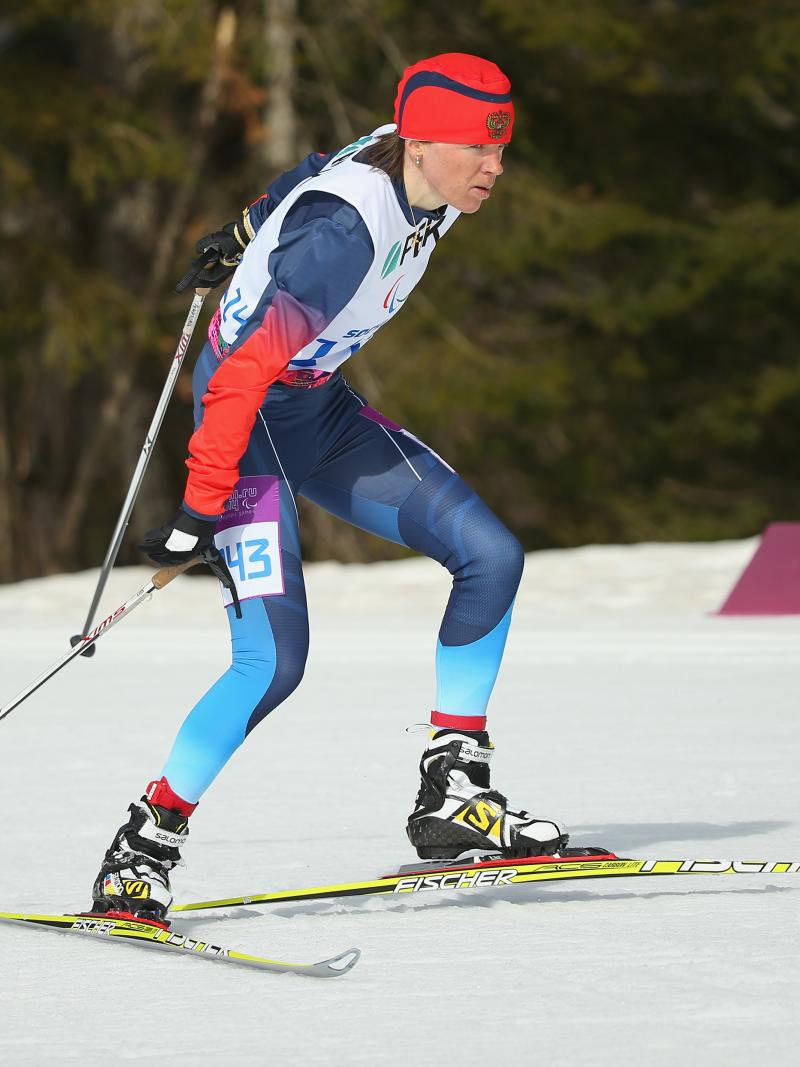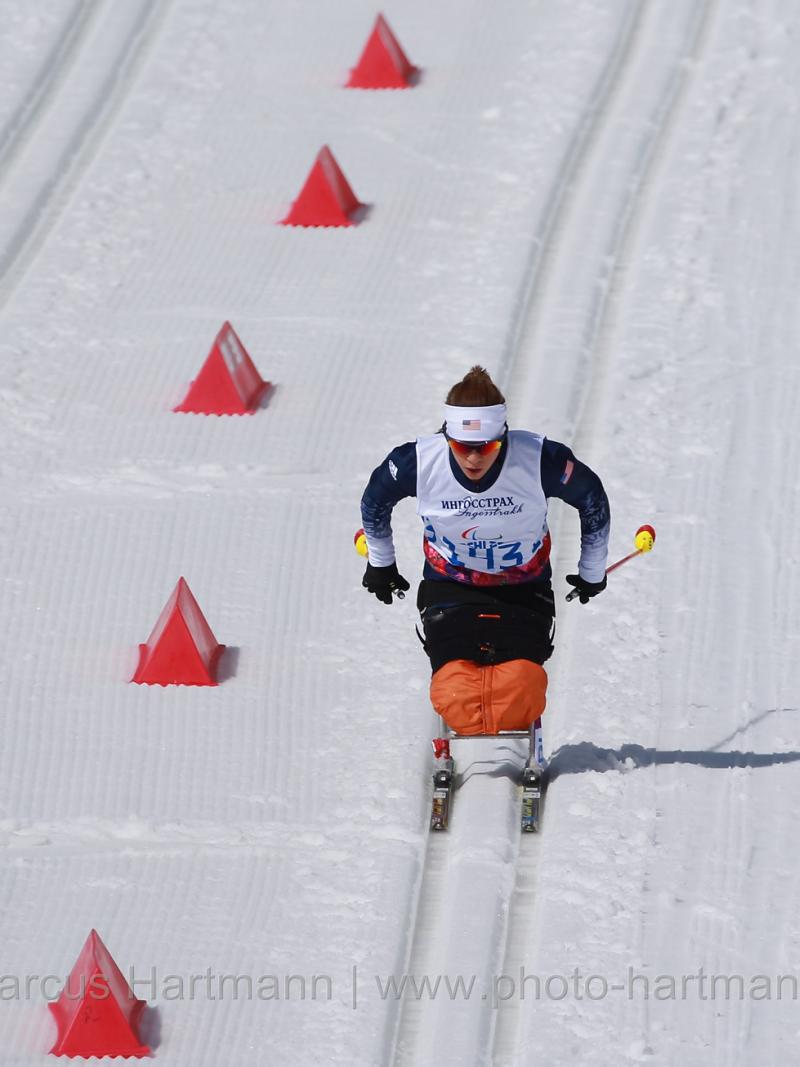Training with cross-country skier Eirik Bye
The Paralympic and World Championships medallist has been working with a new guide this season. 26 Mar 2016
Eirik Bye of Norway competes at the Sochi 2014 Paralympic Winter Games.
"I think we need some years to build up a perfect partnership and come up to the same level that we were last year."
All cross-country skiers know the importance of training but for a visually impaired athlete it is crucial. It is not just your body you have to train but you have to build the trust and teamwork with your guide that is essential for success in the sport.
Norway’s Paralympic and World Championships bronze medallist Eirik Bye competed with a new guide this season and has had to try and redevelop this relationship. “I train with my guide, Arvid Nelson, almost every day, and often several times a day. We try to have very good cooperation on the tracks and we also practise this when we are training together,” Bye explained.
“In my best races the cooperation with my guide and I has been optimal, and it has to be it if I am to perform the best I can. Therefore we focus a lot in training on working well together.
“I think we need some years to build up a perfect partnership and come up to the same level that we were last year. My old guide, Kristian Myhre Hellerud, and I had worked together for five years, so we had good teamwork and good cooperation during the races.
“Arvid and I are working hard every day to improve,” continued Bye, “so I am sure that we will be a very good team and race many good competitions together.”
As well as a good guide it is also important to have the right coaching. Bye is lucky enough to have two well qualified coaches working with him, former biathlete Lars Berger and former cross-country skier Morten Eillifsen.
“They both have a lot of experience in the sport and it is very motivational to work with them and I think their training philosophy is very good,” Bye said. “They design a training schedule for me, and then we discuss the schedule and complete the schedule together. I think that it’s a very good way to do it and to learn from them.”
As Bye is just 20-years-old he has to manage his schedule so that it allows him both to train and continue his education.
“A typical and optimal training day for me starts with some training in the morning with for example a long trip on skis in the winter or running or roller-skiing in the summer. “Then its home for lunch and I sleep for a few hours.
“Then more training in the afternoon for example in the gym, where I mainly focus on general strength in the stomach and back, or more roller-skiing or running,” said Bye. “Running is maybe one of the best ways to build up my shape and in Norway the philosophy is for a lot of running in pre-season.
“I also study in Lillehammer, so some days I go to school after training, instead of sleeping. However that is not ideal for my second training session.”
Bye will spend the next months continuing to work with Nelson ahead of the 2017 IPC Biathlon and Cross-Country Skiing World Championships, where he will hope to improve on his results in 2015-16.







